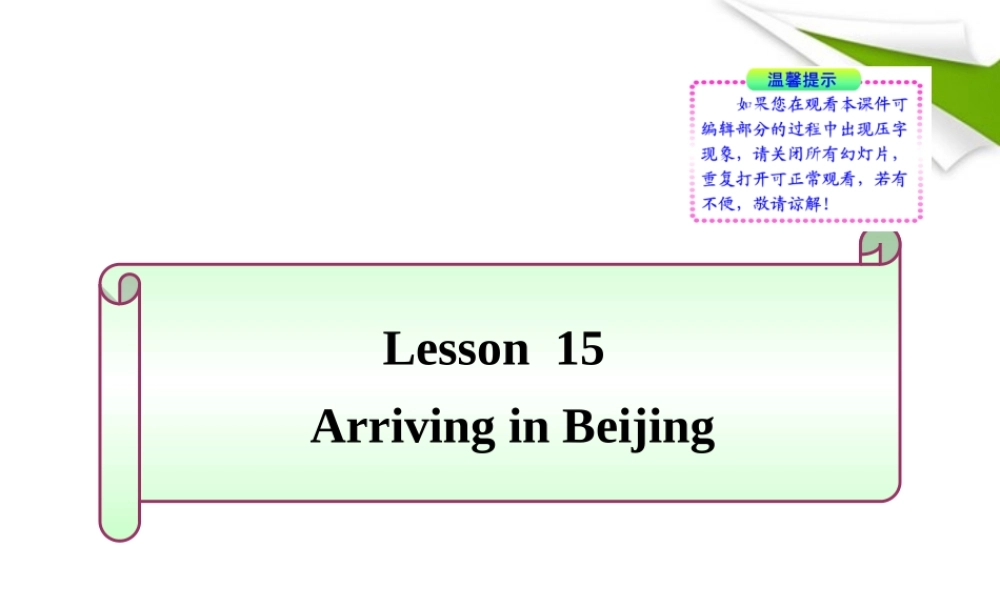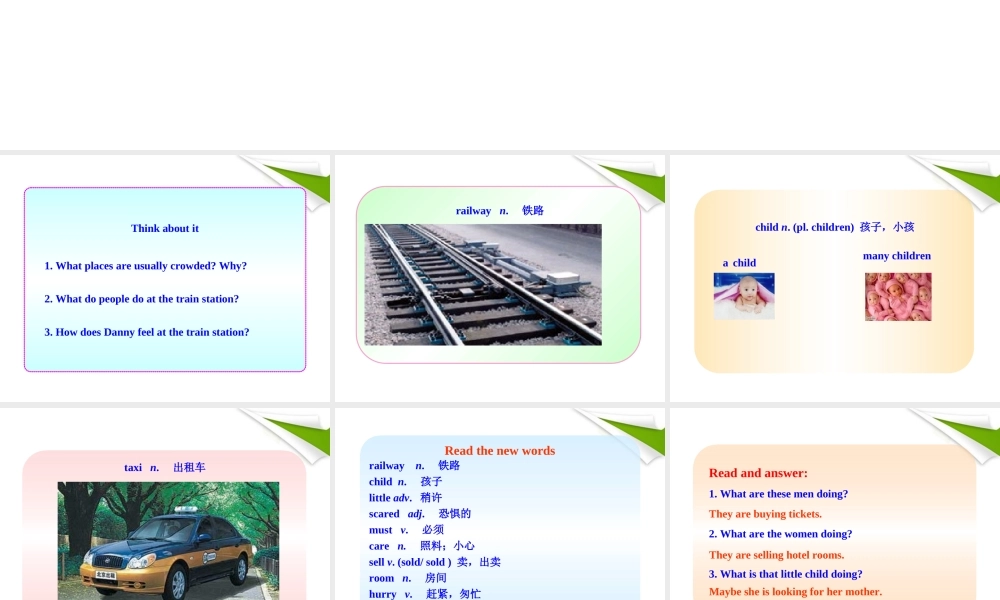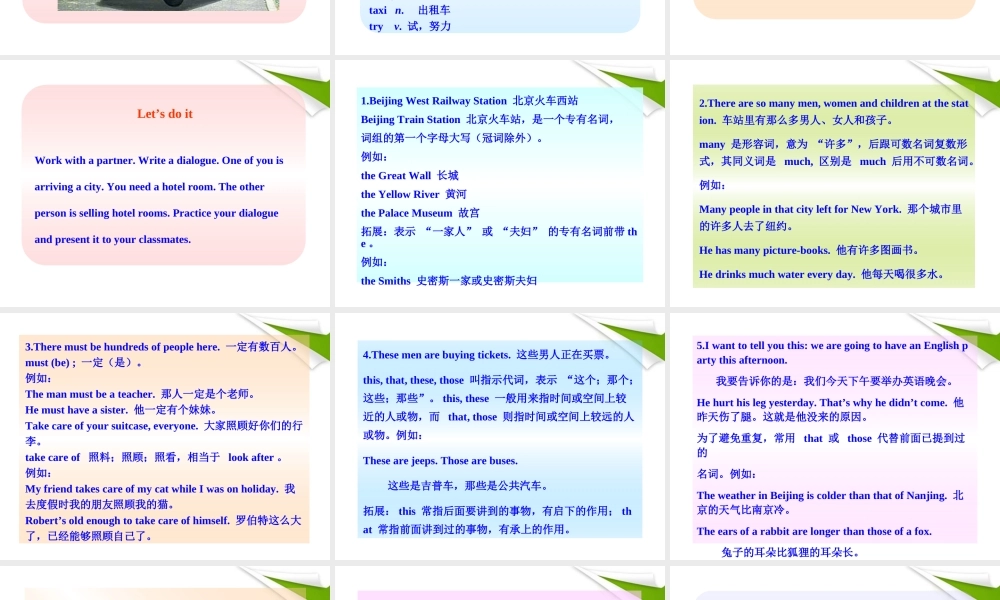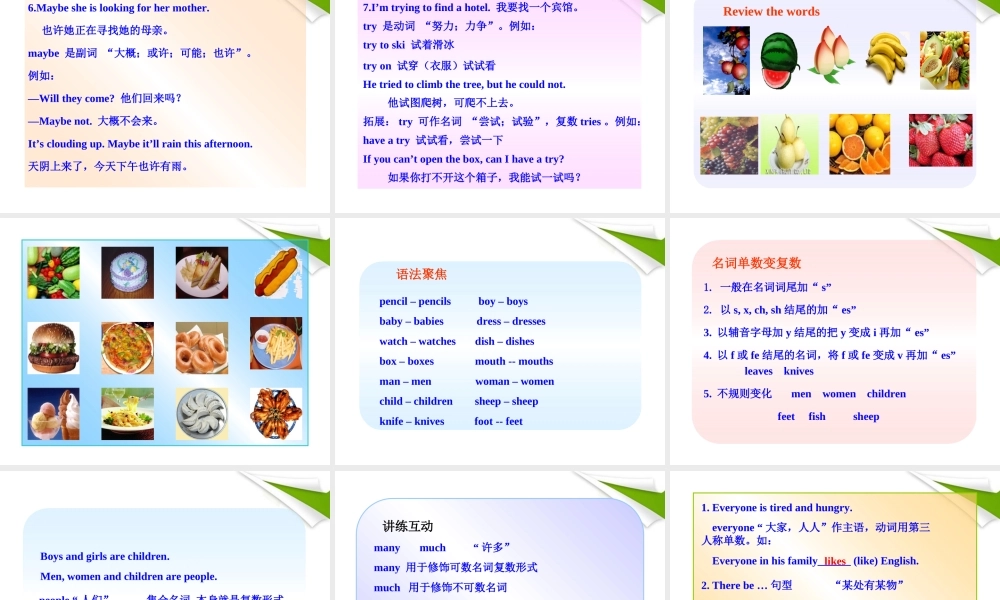Lesson 15 Arriving in Beijing1. What places are usually crowded? Why?2. What do people do at the train station? 3. How does Danny feel at the train station?Think about itrailway n. 铁路many childrenchild n. (pl. children) 孩子,小孩 a childtaxi n. 出租车Read the new words railway n. 铁路 child n. 孩子 little adv. 稍许 scared adj. 恐惧的 must v. 必须 care n. 照料;小心 sell v. (sold/ sold ) 卖,出卖 room n. 房间 hurry v. 赶紧,匆忙 taxi n. 出租车 try v. 试,努力Read and answer:1. What are these men doing?2. What are the women doing?3. What is that little child doing?They are buying tickets.They are selling hotel rooms.Maybe she is looking for her mother.Let’s do itWork with a partner. Write a dialogue. One of you is arriving a city. You need a hotel room. The other person is selling hotel rooms. Practice your dialogue and present it to your classmates.1.Beijing West Railway Station 北京火车西站Beijing Train Station 北京火车站,是一个专有名词,词组的第一个字母大写(冠词除外)。例如:the Great Wall 长城 the Yellow River 黄河the Palace Museum 故宫 拓展:表示 “一家人” 或 “夫妇” 的专有名词前带 the 。例如:the Smiths 史密斯一家或史密斯夫妇2.There are so many men, women and children at the station. 车站里有那么多男人、女人和孩子。many 是形容词,意为 “许多”,后跟可数名词复数形式,其同义词是 much, 区别是 much 后用不可数名词。例如:Many people in that city left for New York. 那个城市里的许多人去了纽约。He has many picture-books. 他有许多图画书。He drinks much water every day. 他每天喝很多水。3.There must be hundreds of people here. 一定有数百人。must (be) ; 一定(是)。例如:The man must be a teacher. 那人一定是个老师。He must have a sister. 他一定有个妹妹。Take care of your suitcase, everyone. 大家照顾好你们的行李。take care of 照料...




